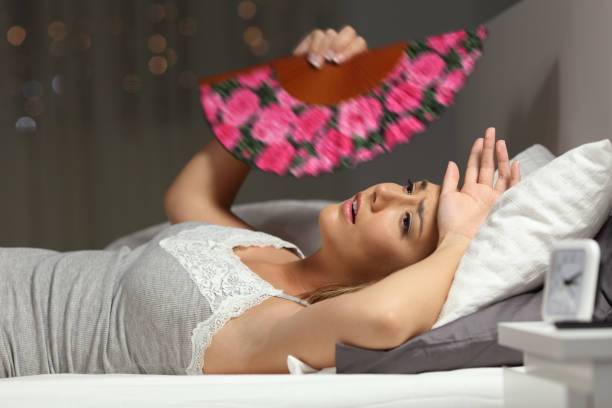Is it typical to experience night sweats? Here's how to address the issue.
Many Things That Can Cause Sweating at Night:
Sweating at night can be caused by various factors such as menopause, medications, infections, sleep disorders, stress, and your sleep environment. If this issue is affecting your sleep, it is recommended to consult your healthcare provider. To find relief from night sweats, you can try adjusting your bedroom temperature, wearing loose and lightweight clothing, and avoiding triggers like spicy foods or alcohol before bedtime.
Understanding Night Sweats: Definition and Causes
Night sweats, also known as sweating in your sleep, refer to episodes of excessive sweating during the night that can soak your clothes and bedding. There are several common causes of night sweats. Let's explore each of them:
Menopause: During menopause, hormonal changes in the body can lead to hot flashes, excessive sweating, and night sweats.
Medications: Certain medications, including antidepressants, pain relievers, diabetes medications, and steroids, can have sweating as a side effect.
Infections: Various infections such as HIV, fungal infections, osteomyelitis, endocarditis, and tuberculosis can cause night sweats.
Hyperthyroidism: An overactive thyroid can raise body temperature and metabolism, leading to sweating at night.
Cancer: Some types of cancers, such as Hodgkin's lymphoma, non-Hodgkin's lymphoma, and leukemia, can cause night sweating.
Sleep Apnea: People with sleep apnea, a sleep disorder characterized by interrupted breathing during sleep, may experience night sweats due to the extra effort required to breathe.
Anxiety and Stress: Mental anxiety and stress can manifest physically, increasing heart rate and respiration, which can lead to sweating during sleep.
Alcohol: Consuming alcoholic beverages before bed can trigger sweating as the body metabolizes the alcohol.
Environment: Factors like bedroom temperature, pajama material, and the number of blankets on the bed can affect nighttime sweating.
Prevalence and Relief from Night Sweats
Night sweats are estimated to affect a significant percentage of menopausal women and individuals with medical conditions such as tuberculosis and lymphoma. While limited research exists on the general population's experience with night sweats, it is believed to be relatively common. Making adjustments to your sleep environment and daily lifestyle can provide relief. Here are some expert-recommended tips:
Keep your bedroom cool and well-ventilated.
Opt for breathable and moisture-wicking clothing.
Use moisture-wicking bedding materials.
Stay hydrated throughout the day.
Avoid caffeine, alcohol, and spicy foods before bedtime.
Practice relaxation techniques to reduce stress and anxiety.
When to Seek Medical Attention
Occasional night sweats may not be a cause for concern if they do not significantly disrupt your sleep or daily life. However, if night sweats persist despite lifestyle adjustments or worsen in frequency or intensity, it is advisable to consult your healthcare provider. Acute-onset night sweats accompanied by other symptoms should be discussed with a physician promptly to identify potential underlying causes.
Conclusion: Addressing Night Sweats
Night sweats can be a common occurrence, often resulting from environmental factors that cause excessive warmth during sleep. However, they can also be indicative of an underlying health condition or medication side effect. If you frequently experience night sweats and find no relief from self-care measures, reaching out to your healthcare provider is essential to determine the cause and explore treatment options.




No comments yet
Be the first to share your thoughts!